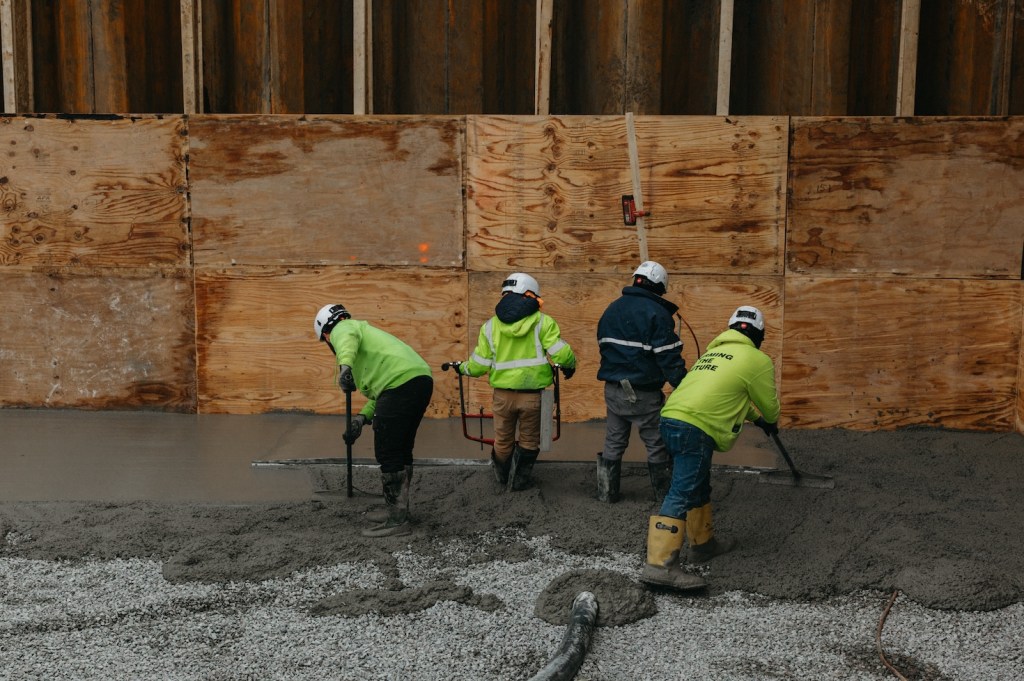Low-carbon cement startups allied with Amazon and Microsoft lose federal funding
Sublime Systems received its funding cancellation notice one week after announcing its unique procurement contract with Microsoft. Read More

- The cuts came as a surprise, given Trump’s vocal support of U.S. manufacturing.
- Even projects with high-profile corporate participation are subject to cancellation.
- The review isn’t over: A total of $15 billion for industrial decarbonization at stake.
The Department of Energy’s plan to cut $3.7 billion in Office of Clean Energy Demonstrations (OCED) awards strips funding from two startups that have scored high-profile deals with Microsoft and Amazon to decarbonize data center construction.
The DOE cuts came after a financial review ordered by President Donald Trump. So far, it impacts 24 projects — most related to carbon capture and storage — planned by a range of companies that also includes Diageo, ExxonMobil, Kohler and Kraft Heinz. About two-thirds of the projects were signed between Election Day and late in President Joe Biden’s term.
The cuts came as a surprise to the two startups, Brimstone Energy and Sublime Systems. “Given our project’s strong alignment with President Trump’s priority to increase U.S. production of critical minerals, we believe this was a misunderstanding,” said a Brimstone spokesperson.
Sublime, which also talked up its U.S. manufacturing plans in a statement about the cancellation, told Trellis that it is “evaluating various scenarios that leave our scale-up unimpeded.” Through a spokesperson, the company appealed to policymakers who “recognize that investing in American-invented breakthrough industrial technologies can address multiple policy priorities in tandem to the benefit of Americans from all walks of life.”
$15 billion at stake
The DOE is examining close to 180 grants and awards worth approximately $15 billion that would replace fossil-fueled industrial heating equipment, scale up carbon capture and address other hard-to-abate processes.
The agency’s OCED, which is slated for closure, had planned to award $1.6 billion to six projects aimed at reducing the emissions associated with cement by 4 million metric tons annually. The industry accounts for about 5.5 percent of all greenhouse gas emissions.
Four of the projects announced by OCED in March 2024, including those involving Sublime and Brimstone, were terminated by Energy Secretary Christopher Wright on May 30. They are:
- Brimstone was supposed to receive up to $189 million to build its first commercial-scale factory in an as-yet-undisclosed location. It is closely allied with Amazon, which has backed it through the Climate Pledge Fund. Brimstone uses calcium silicate rocks instead of limestone for production, which cuts emissions and also produces critical minerals such as alumina.
- Sublime, which announced a deal with Microsoft for a new carbon credit a week before the cancellation, was expecting $87 million to help build a factory in Massachusetts. The company uses an electrochemical process instead of a combustion-driven kiln to make a substance that can replace ordinary portland cement.
- National Cement, which is investing $500 million on a plant in California, was anticipating a DOE match of that amount. It’s a multifaceted project: the company wants to commercialize blended cement that uses calcined clay to produce limestone. It also plans a carbon capture and storage installation at the facility.
- Heidelberg Materials in Louisiana was selected for up to $500 million to install carbon capture technology at a new plant in Mitchell, Indiana. Massachusetts. The company uses an electrochemical process instead of a combustion-driven kiln to make a substance that can replace ordinary portland cement.
The fate of two other projects is unclear. Roanoke Cement could receive up to $61.7 million for an approach that minimizes the use of clinker, which is the most carbon-intensive part of cement production. Summit Materials, which is developing ways to replace limestone with local clay, has been in negotiations for up to $215.6 million.
[Get equipped with strategies to harness the power of capital for the clean economy transition at GreenFin, Oct. 28-30, San Jose.]

Subscribe to Trellis Briefing
Featured Reports

The Premier Event for Sustainable Business Leaders















